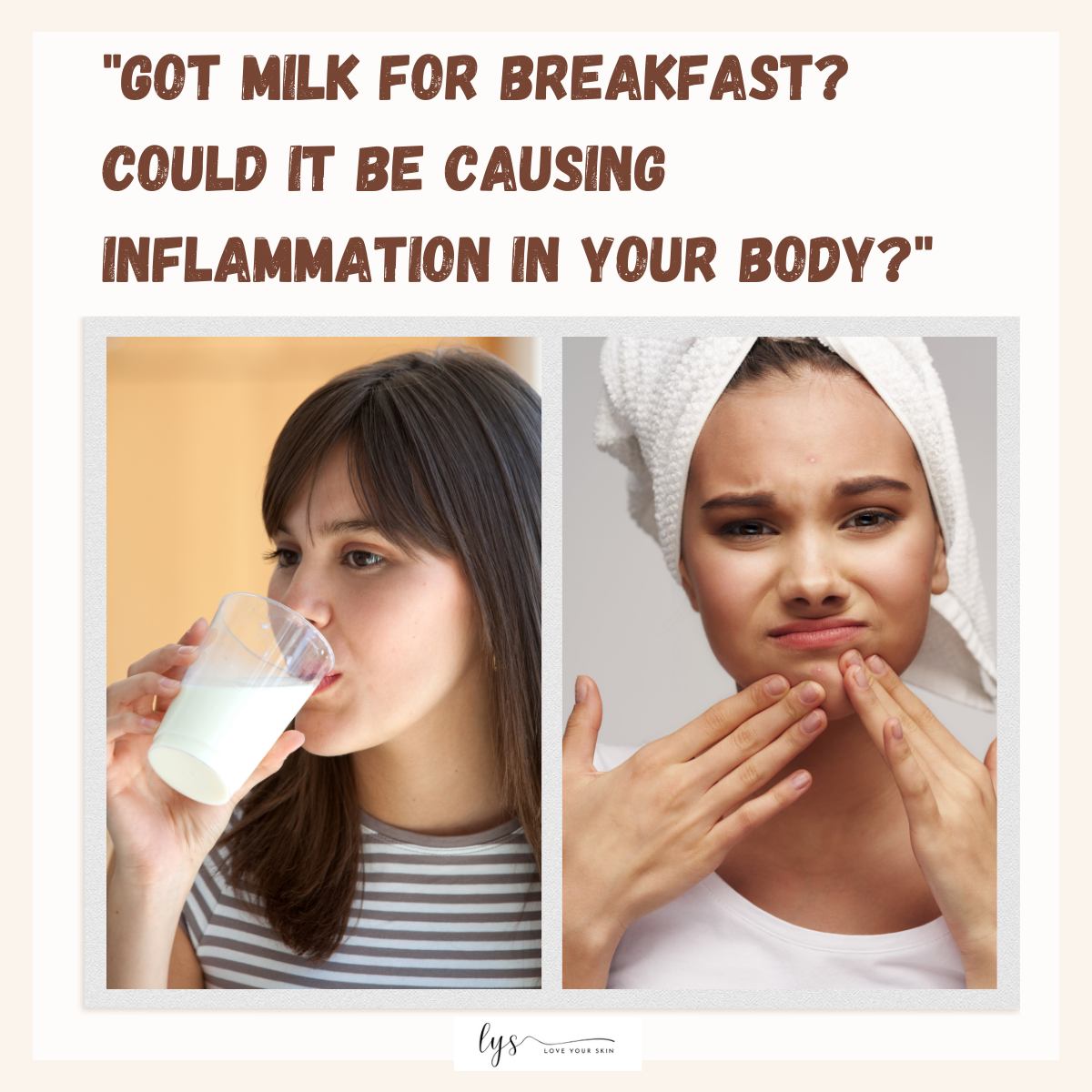
Got Milk for Breakfast? Could It Be Causing Inflammation in Your Body?
For generations, milk has been praised as the perfect way to start your day. From cereal to coffee, many of us have made it a breakfast staple without a second thought.
However, recent researches on the potential link between dairy consumption and inflammation has raised some critical questions.
Is your morning milk routine causing inflammation in your body?
Let’s dive into this intriguing topic.
The Dairy Dilemma: Exploring the Inflammation Connection
While dairy products like milk are rich in essential nutrients like calcium and vitamin D, they also contain certain elements that have been associated with inflammation in some individuals.
Here are some key factors to consider:
- Hormones: Milk, particularly commercial cow’s milk, contains hormones that may disrupt the body’s hormonal balance. This disruption can lead to increased inflammation, potentially affecting the skin and other parts of the body.
- IGF-1: Insulin-like Growth Factor 1 (IGF-1) is found in dairy products and has been linked to increased sebum (skin oil) production and inflammation, potentially contributing to skin problems and other inflammatory conditions.
- Lactose and Casein: Lactose intolerance or sensitivity to casein, a common components of dairy, can lead to digestive issues, which in turn may contribute to inflammation.
- Allergies: Dairy is a common allergen, and allergic reactions can trigger inflammation throughout the body, including the skin.
- Chronic Inflammation: Even if you don’t have a specific sensitivity or allergy, some individuals may experience chronic inflammation due to a high dairy intake, which can manifest as various health issues, including skin problems.
Is Dairy-Free the Way to Be? If you’re concerned about the potential inflammation caused by dairy or have experienced skin issues or other health problems, consider dairy-free alternatives.
There’s a wide array of delicious options available:
- Plant-Based Milk: Almond, soy, oat, coconut, and rice milk offer dairy-free alternatives for your cereal and coffee.
- Yogurt Alternatives: Explore soy, almond, coconut, or oat-based yogurt options for a non-dairy breakfast.
- Cheese Alternatives: Try plant-based cheese made from nuts, soy, or other plant-based ingredients for a flavorful addition to your morning meal.
- Butter Alternatives: Swap out dairy butter for dairy-free options made from ghee, coconut oil, avocado oil, or other plant-based fats.
- Ice Cream Alternatives: Satisfy your sweet tooth with non-dairy ice cream made from coconut, almond, or soy milk.
- Sour Cream Alternatives: Use soy, cashew, or other plant-based sour cream alternatives in your breakfast recipes.
- Creamer Alternatives: Elevate your coffee or tea with almond, coconut, or oat milk creamers.
By opting for dairy-free alternatives, you can enjoy your breakfast without the potential for dairy-related inflammation. Remember to select options fortified with essential nutrients like calcium and vitamin D to maintain a well-balanced diet.
Conclusion :
While milk has long been a breakfast tradition, it’s crucial to listen to your body and consider its potential effects on inflammation and overall health. The relationship between dairy and inflammation varies from person to person, so there’s no one-size-fits-all answer.
If you suspect that dairy is causing inflammation or skin issues, consider trying dairy-free alternatives and consulting a holistic health professional for personalized guidance.
Connect with Me and Find Natural Skin Solutions. If you’re dealing with a skin issue and are seeking a natural cure, reach out to me.
I’m here to provide guidance and support for your skin health journey. Your skin deserves the best, and together, we can achieve radiant, healthy skin naturally.
